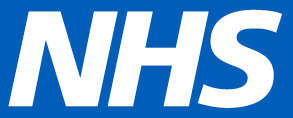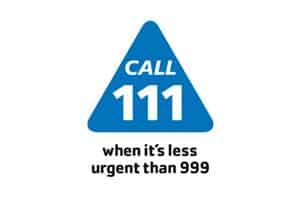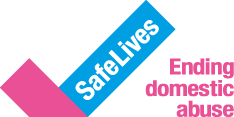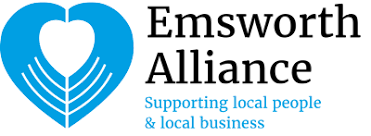Covid 19 Update And See ADVICE RECOMMENDED TODAY
Statement from NHS in Hampshire and the Isle of Wight.
Emsworth Surgery remains well prepared to help our community throughout the COVID-19 global pandemic.
We remain FULLY OPEN Monday to Friday 0800 – 1830 as normal.
When we are very low on reception staff we may have to close for an hour between 1230-1330.
Our inner door is now controlled on an intercom.
We are all in this together.
The overwhelming majority of our community have been so kind, supportive and understanding.
However, any behaviour that makes our staff threatened, or upset is simply not acceptable, please bear this in mind.
What to do if you suspect Covid 19?
All COVID-19 concerns should still initially be directed through the 111online coronavirus service https://111.nhs.uk/covid-19/
How are we working to help keep us all as safe as possible?
Our new ways of working are now more bedded in, thank you for using online and remote options where possible.
Use of e-consult is 10 times higher than, so thank you for changing the way you access your surgery. Doctors and Nurses are working remotely where possible and a huge proportion of our work is now being managed safely, and satisfactorily online, over the phone, or via video consult.
PLEASE DO NOT COME TO THE SURGERY BEFORE YOU HAVE CALLED US.
Please continue to consider if your request could wait until our health system is under less pressure.
If it cannot wait then we will do our absolute best to help (either phone or face-to-face) with any of our clinical staff.
Sincerely, and on behalf of
The Partners & The Whole Team
Emsworth Surgery
Do I need a new inhaler?
We are getting lots of requests for asthma inhalers in patients that haven’t had any for years, and also requests for ‘rescue packs’ for COVID. These requests are coming from patients with chronic lung problems in general – not just asthma. This is inappropriate and not backed up by any evidence. The Asthma UK COVID-19 page is a great resource to get advice and support. (https://www.asthma.org.uk/advice/triggers/coronavirus-covid-19/)
ALL PATIENTS TAKING the medications listed below for Diabetes should follow the advice set out below
Empagliflozin / Dapagliflozin / Canagliflozin for control alongside their insulin are at particularly high risk of complications if admitted with Covid-related symptoms.
- People with type 1 diabetes and adjunctive SGLT2 inhibitor use should be advised to STOP it immediately (even if well) and rely on higher dose insulin for the short to intermediate term
- People with Type 2 Diabetes treated with insulin who have previously experienced ketoacidosis during illness should similarly be advised to STOP it immediately
- People with Type 2 Diabetes on oral agents can continue to take SGLT2 inhibitors if well but should stop immediately if they develop Covid-related symptoms
- People without diabetes (or with pre-diabetes) who have high cardiovascular risk and have been offered SGLT2 inhibition as a cardiovascular risk reduction strategy should STOP it immediately (even if well)
- No patient admitted to hospital with Covid-related symptoms should be prescribed an SGLT2 inhibitor
Child and adolescent Mental health
Adults and over 18’s With Mental Health concern
Are you or someone you know experiencing a crisis and need urgent mental health support? Call 111 or visit www.111.nhs.uk and speak to the NHS Mental Health Triage Service.
Our NHS 111 mental health triage service provides advice, support and guidance, 24 hours a day, seven days a week, for anyone living in Hampshire and the Isle of Wight.
The Mental Health Triage Team has a wide range of skills, including on the phone brief psychological support and has access to key services and organisations that can offer mental health support to people in their time of need.
This service can also be also used by GPs and other healthcare professionals, the emergency services, mental health charities and any other organisations that come into contact with people experiencing a mental health crisis.
The Mental Health Triage Service can be accessed by phone by dialling 111 and online at www.111.nhs.uk.
If you are experiencing a life threatening emergency, please call 999.
Adding Images
Econsult templates differ and if you have a rash or a lesion which you would like to send a photo of to your doctor please navigate to the Link for Skin – Then RASH. Even if you do not have a rash this is the simplest way of getting a photo to us, Please complete as much information as possible and then upload your photos. The Doctor will then review and will either contact you back through email or contact you.
Accessibility – Emsworth Surgery
Full wheelchair and disabled access is available via the main entrance at both sites.
We have 1 consulting room at Emsworth which is not possible to access for those with disabilities and we ask you to advise us if you cannot manage to make it upstairs.
For those hard of hearing, a telephone service is available on 0845 606 4647.
We have hearing loops at Emsworth
Interpretation and translation services in person or by phone can be arranged for patients who do not speak English.
(Please let reception know if you need this service when booking an appointment)
The safest course of action is for you to stay at home at all times and avoid all face-to-face contact for at least twelve weeks from today, except from carers and healthcare workers who you must see as part of your medical care. This will protect you by stopping you from coming into contact with the virus.
If you are in touch with friends, family or a support network in your community who can support you to get food and medicine, follow the advice in this letter. If you do not have contacts who can help support you go to www.gov.uk/coronavirus-extremely-vulnerable or call 0800 0288327, the Government’s dedicated helpline.
If, at any point, you think you have developed symptoms of coronavirus, such as a new, continuous cough and/or high temperature (above 37.8 °C), seek clinical advice using the NHS 111 online coronavirus service ). If you do not have access to the internet, call NHS 111. Do this as soon as you get symptoms.
You, or the person you care for, should:
- strictly avoid contact with someone who is displaying symptoms of coronavirus (COVID-19). These symptoms include high temperature (above 37.8 °C) and/or a new and continuous cough
- not leave your home
- not attend any gatherings. This includes gatherings of friends and families in private spaces e.g. family homes, weddings and religious services
- not go out for shopping, leisure or travel. When arranging food or medication deliveries, these should be left at the door to minimise contact
- keep in touch using remote technology such as phone, internet, and social media
- use telephone or online services to contact your GP or other essential services
- regularly wash your hands with soap and water for 20 seconds. Ask carers or support workers who visit your home to do the same.
The rest of your household should support you to stay safe and stringently follow guidance on social distancing, reducing their contact outside the home. In your home, you should:
- minimise the time you spend with others in shared spaces (kitchen, bathroom and sitting areas) and keep shared spaces well ventilated
- aim to keep 2 metres (3 steps) away from others and encourage them to sleep in a different bed where possible • use separate towels and, if possible, use a separate bathroom from the rest of the household, or clean the bathroom after every use
- avoid using the kitchen when others are present, take your meals back to your room to eat where possible, and ensure all kitchenware is cleaned thoroughly. If the rest of your household are able to follow this guidance, there is no need for them to take the full protective measures to keep you safe
You will still get the medical care you need during this period. We are considering alternative options for managing your care and will be in touch if any changes are needed. Your hospital care team will be doing the same. We also advise that:
- Carers and support workers who come to your home
Any essential carers or visitors who support you with your everyday needs can continue to visit, unless they have any of the symptoms of coronavirus. All visitors should wash their hands with soap and water for 20 seconds, on arrival and often.
It is also a good idea to speak to your carers about what happens if one of them becomes unwell. If you need help with care but you’re not sure who to contact please visit www.gov.uk/coronavirus-extremely-vulnerable
- Medicines that you routinely take
The government is helping pharmacies to deliver prescriptions. Prescriptions will continue to cover the same length of time as usual. If you do not currently have your prescriptions collected or delivered, you can arrange this by:
- Asking someone who can pick up your prescription from the local pharmacy, (this is the best option, if possible)
- Contacting your pharmacy to ask them to help you find a volunteer (who will have been ID checked) or deliver it to you
You may also need to arrange for collection or delivery of hospital specialist medication that is prescribed to you by your hospital care team.
- Planned GP practice appointments
Wherever possible, we will provide care by phone, email or online. But if we decide you need to be seen in person, we will contact you to arrange your visit to the surgery or a visit in your home.
- Planned hospital appointments
NHS England have written to your hospital to ask them to review any ongoing care that you have with them. It is possible that some clinics and appointments will be cancelled or postponed. Your hospital or clinic will contact you if any changes need to be made to your care or treatment. Otherwise you should assume your care or treatment is taking place as planned. Please contact your hospital or clinic directly if you have any questions about a specific appointment.
- Support with daily living
Please discuss your daily needs during this period of staying at home with carers, family, friends, neighbours or local community groups to see how they can support you. If you do not have anyone who can help you, please visit www.gov.uk/coronavirus-extremely-vulnerable
This letter is evidence, for your employer, to show that you cannot work outside the home. You do not need to get a fit note from your GP. If you need help from the benefit system visit https://www.gov.uk/universal-credit
- Urgent medical attention
If you have an urgent medical question relating to your existing medical condition, or the condition of the person you are caring for please contact us, or your specialist hospital care team, directly. Where possible, you will be supported by phone or online. If your clinician decides you need to be seen in person, the NHS will contact you to arrange a visit in your home, or where necessary, treatment in hospital.
To help the NHS provide you with the best care if you need to go to hospital as a result of catching coronavirus, we ask that you prepare a single hospital bag. This should include your emergency contact, a list of the medications you take (including dose and frequency), any information on your planned care appointments and things you would need for an overnight stay (snacks, pyjamas, toothbrush, medication etc). If you have an advanced care plan, please include that.
- Looking after your mental well-being
We understand that this may be a worrying time and you may find staying at home and having limited contact frustrating. At times like these, it can be easy to fall into unhealthy patterns of behaviour, which can make you feel worse. Simple things you can do to stay mentally and physically active during this time include:
- look for ideas for exercises to do at home on the NHS website
- spend time doing things you enjoy – reading, cooking and other indoor hobbies
- try to eat healthy, well-balanced meals, drink enough water, exercise regularly, and try to avoid smoking, alcohol and recreational drugs
- try spending time with the windows open to let in fresh air, arranging space to sit and see a nice view (if possible) and get some natural sunlight. Get out into the garden or sit on your doorstep if you can, keeping a distance of at least 2 metres from others
You can find additional advice and support from Every Mind Matters (www.nhs.uk/oneyou/every-mind-matters/) and the NHS mental health and wellbeing advice website (www.nhs.uk/conditions/stress-anxiety-depression/).
Further information on coronavirus, including guidance from Public Health England, can be found on the www.nhs.uk/conditions/coronavirus-covid-19/
and www.gov.uk/coronavirus websites.
 01243 378 812
01243 378 812







